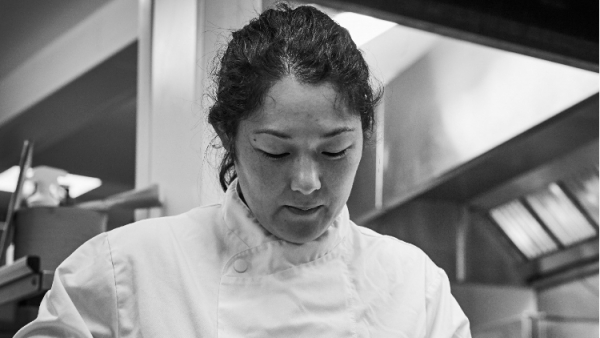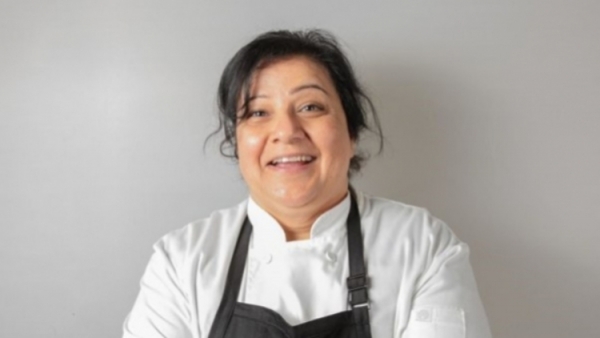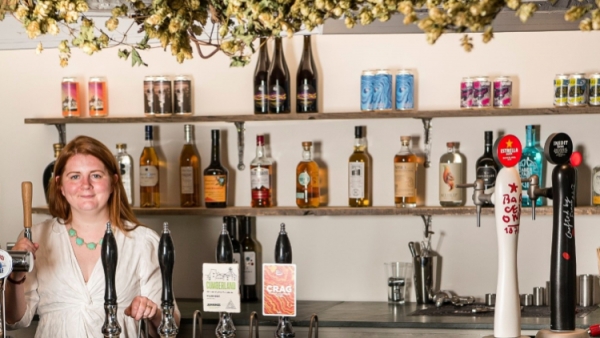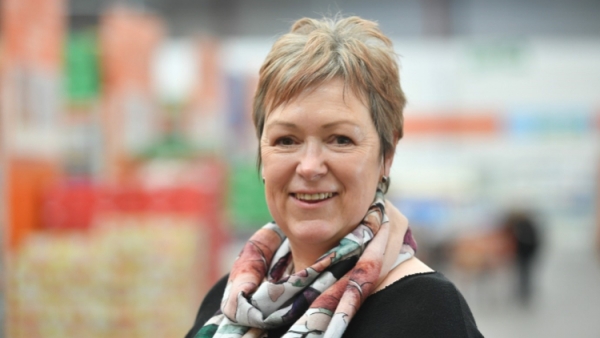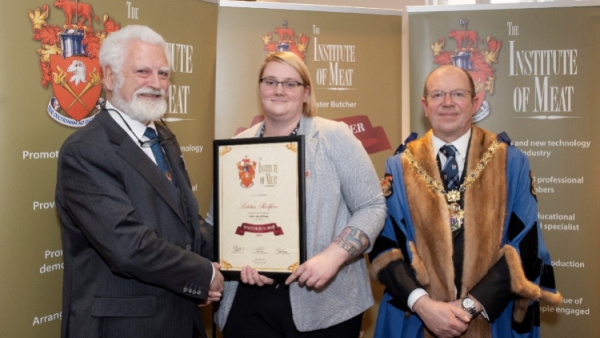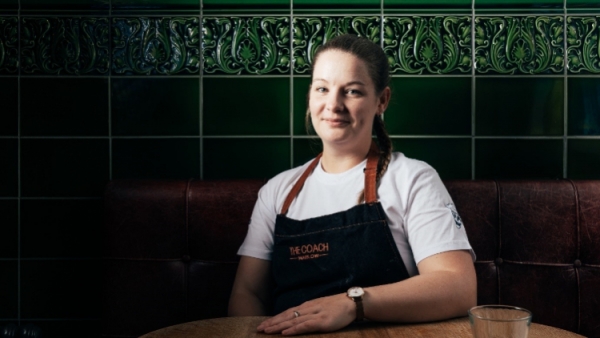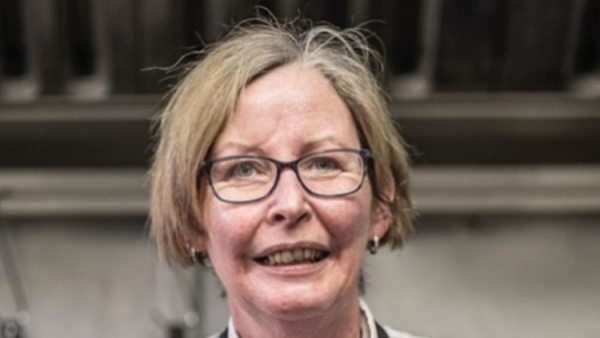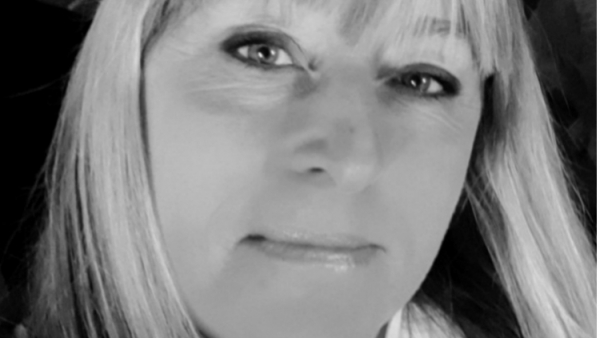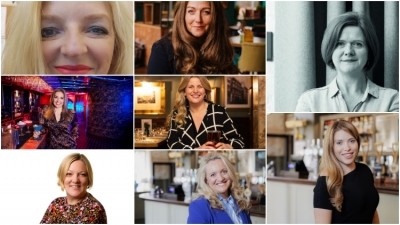INTERNATIONAL WOMEN'S DAY 2023
Female chefs celebrated for International Women's Day
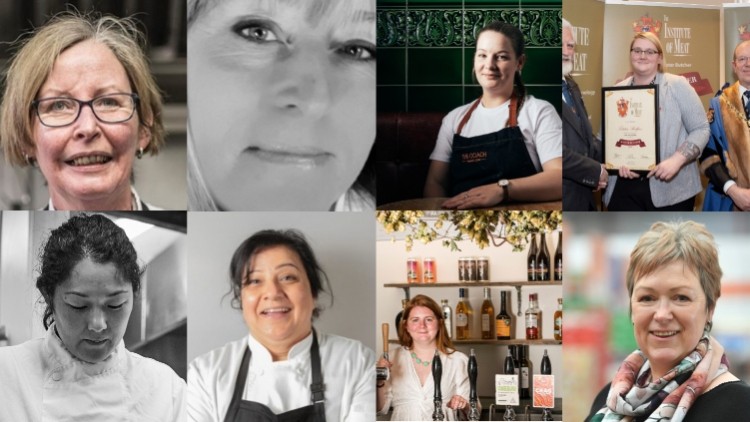
Nina Matsunaga, chef patron, the Black Bull, Sedbergh:
Best advice received:Always remember to take a step back and re-evaluate a situation, and also to think about doing yoga.
Best advice given:Be patient. Patience truly is a virtue. I am by nature a very impatient person, but despite that, I take always tell people to slow down, take stock and be patient both with themselves and with others.
Biggest challenges faced:On occasion I’ve experienced minor creative blocks, but that’s largely because I’ve been trying to do too much. I’ve been fortunate in that I’ve always managed to resolve it by making sure I take some time out to relax and spend time doing some reading or visiting other restaurants to try new things.
It’s also been quite tough managing the constant staff shortages in the aftermath of what the industry has experienced with both Brexit and Covid. It’s just put more pressure on everyone in what is already a pressured environment. The staffing side of things is a massive challenge for everyone when trying to find the right people, the right mix of people, the right job for the right person and the right person at the right time. Nightmare!
Have things changed for women in the sector since you began your career?Definitely. Previously it was hard for women to be heard due to the crude jokes, the bravado, both of which still exist to some degree, but I don’t think it’s as much of an issue in places where women head up the team. Women support each other more actively now, which didn’t really happen before, at least it didn’t feel like it.
What are the barriers that are still to be overcome and how could this be tackled?People underestimate women still, especially when it comes to having a life outside the industry, particularly when it comes to having kids, which is still a thorny issue. Some men I’ve worked with in the past actually just thought if a woman had kids she should stay at home and look after them, particularly if they were both working in the industry, essentially becoming a full-time stay at home mum and parking her career. Happily, that attitude has begun to slowly change.
Gender equality is something that still needs significant work. Males, particularly in kitchens, can make some sweeping assumptions, particularly if a young attractive woman chooses to work in that environment. Many instantly dismiss their ability and professionalism or in some cases view them as a distraction that’s not welcome. There’s definitely still lots to do to rectify this kind of outdated view.
How can the sector #EmbraceEquity?It’s a hard question. Being a woman, foreign and small, has on occasion presented me with some difficulties. Subtle racism, overt racism, underestimation due to gender and positive discrimination, in the form of people trying to be helpful but ending up being condescending, assuming I need help lifting things etc due to my size or gender. In general though it has made me more tenacious, which has stood me in good stead, especially in terms of recognising and understanding the very different challenges some male colleagues in the industry experience daily.
In an ideal world we need to become gender blind in some way, but the reality is, that’s nearly impossible. From my perspective, I embrace my differences and use them to my advantage, but that doesn’t mean to say it can’t be an uphill slog at times.
Stosie Madi, chef co-proprietor at the Parkers Arms
Best advice received:Cook for your guests not for your ego.
Best advice given:You are better than breaking even. Make profit because you're worth it.
Biggest challenges faced:Our rural, remote location makes recruitment nigh impossible.
Have things changed for women in the sector since you began your career?I would like to think so. I see more women in the kitchen. It would be good to see more female led pub businesses.
What are the barriers that are still to be overcome and how could this be tackled?There needs to be better work/life balance for younger women who want to start a family, as well as for those with young children. Guests need to understand you have to pay more for hospitality services. This in turn should be passed to hospitality workers.
How can the sector #EmbraceEquity?Look carefully at your workforce. Make sure there is an opening for all, as diversity in the workplace brings great balance and fresh ideas. Leaders should be very clued up on how to spot racism and any form of exclusion in the work place. That should then filter through.
Nicola Tickle, co-owner, Heft, High Newton:
Best advice received:Keep your head down, work hard and embrace all the opportunities given – even if you don't know why you should be doing it at the time.
Best advice given: Whatever you do, try and do it to a five-star standard. We put as much love and thought into our sausage rolls as we do our tasting menu.
Biggest challenges faced:Making an offer on a business at the beginning of March 2020 is right up there with the worst of it. We finally got the keys in the summer and have managed to negotiate Covid, Brexit and a cost-of-living crisis. Having negotiated all that, hopefully the future will be a little bit more settled.
Have things changed for women in the sector since you began your career?It's nice to see more women in the kitchen in top class establishments: you can see by the number of girls in college that it's obviously having an impact. It's diluting the toxic masculine culture which is making it a much better environment to work in. Women aren't as tied to leaving when they have children as they once were, so there are definitely more people not bowing out at that stage of life.
What are the barriers that are still to be overcome and how could this be tackled?There’s still a way to go with flexible working and getting that work life balance that allows women to have a bigger stake in the industry. We have a lot to say and a lot of experience.
How can the sector #EmbraceEquity?It needs to allow women a seat at the table on the basis of our contribution, not just as a token gesture. This is what will filter down to the next generation, and ultimately benefit businesses. They're watching us to see how we do it and what kind of role models we are.
Catherine Marston, head of sustainability, Booker:
Best advice received:Always say please and thank you.
Best advice given:Be kind because you never know what the other person is going through.
Biggest challenges faced:Turning my passion for the planet into a career. I started as an exec PA but have always been working away to improve Booker’s sustainability. Then, in 2008, I took the newly created role of sustainability manager and never looked back – I have been here 36 years. I thrive on gaining engagement and action across the business at all levels.
Have things changed for women in the sector since you began your career?It is no secret that wholesale has been a male dominated industry, and it is only in the last few years we have seen some positive change in that area. But there is still so much more to do: female opinion, views and guidance in any board room can only benefit businesses.
What are the barriers that are still to be overcome and how could this be tackled?
We need defined career paths for women, greater flexible working and more mentoring and support for women at all levels of business.
How can the sector #EmbraceEquity?Pay transparency, create networking opportunities, and connect women with the guidance, training and mentorship to help at all levels. We need more and more examples of influential men supporting women in business.
Letitia Redfern, butchery development manager, Booker:
Best advice received:The only limitation to your potential is you.
Best advice given:Never give up on an opportunity to learn something new.
Biggest challenges faced:A big challenge for me was having the opportunities to show my potential to those who could influence my career. Another challenge was believing in my own capabilities to create career confidence.
Have things changed for women in the sector since you began your career?Yes, women are now given more support to enter the sector, giving them more opportunities to learn and progress within the industry.
What are the barriers that are still to be overcome and how could this be tackled?
The sector typically has less female representation. This is where we need to promote the inclusion of women in our promotional material to show that everyone can work and develop within the sector.
How can the sector #EmbraceEquity?Continue to advance the sectors efforts to promote and include women with different skills, cultural backgrounds, and ideologies.
Sarah Hayward, head chef, the Coach, Marlow:
Best advice received:Keep your head down, work hard and always ask questions.
Best advice given:I give the same advice back now.
Biggest challenges faced:Learning how to deal with the challenges brought on by Brexit and Covid simultaneously. Juggling staffing issues alongside increasing costs and finding the best way to maintain a high standard, produce food that appeals to the consumer and create an environment the staff still enjoy working in.
Have things changed for women in the sector since you began your career?There is more of a spotlight on women chefs now than there used to be. We have some incredible women in the industry that have worked so hard to get to the top of their game and are shining the light for all of us.
What are the barriers that are still to be overcome and how could this be tackled?The main barrier is how kitchens are still portrayed. Kitchens are high-pressure environments, and the people leading them are striving for perfection every day. But gone are the days where the head chef is screaming, shouting and throwing things all day.
We are a small team at the Coach in Marlow, and while we work hard and run a tight ship, the team is also a family, and we all work extremely well together and do what we can to help each other out. My guys would do anything for each other.
How can the sector #EmbraceEquity?The sector is already embracing equality. Women in the industry are fearless and passionate. With the spotlight on so many incredible industry leaders right now, it will encourage the younger generation to get stuck in.
Donna Berry, landlady/chef, the Swan and chef/proprietor, Spelt, Bampton
Best advice received:‘Don’t give up, you’ll find somewhere eventually’, was advice I received back in the day when there weren’t many ladies in the kitchens.
Best advice given: Calm down and do one thing at a time, or else nothing gets done. It’s too overwhelming to try and change everything at once.
Biggest challenges faced:Challenges and women in the food industry are one and the same for me. I was acceptable as a waitress but not as a chef back when I first started out. I’m pretty sure it wasn’t the same for the guys that applied. I managed to wheedle my way into a kitchen after a few months of being front-of-house and that’s where I’ve been throughout my career – my favourite place.
Have things changed for women in the sector since you began your career?Thank goodness times have changed, and those of us with a passion for cooking have our chance to shine too. Well done to all the fantastic lady chefs out there that have gone on to worldwide acclaim. I’m happy being in my little part of Devon.
What are the barriers that are still to be overcome and how could this be tackled?The barriers are the misconceptions of our trade, but times are changing with different opening hours and sites opening fewer days. But we need to be encouraging people into our trade, and equality has made it much easier to do the job you want. However, more needs to be done to educate people that no matter their ability or background, a passion for being inventive and learning [is what matters], no matter how we go about it: some people need books and lists while others need to just get their hands dirty. We need to be more patient
How can the sector #EmbraceEquity?With equity, something that I didn’t know I’d been doing all these years, is to show others our passion for the jobs we do, to bring on and nurture the youngsters, the college leavers, the Saturday help and the holiday help. It’s important to teach, to be patient and to encourage the stars of the future or wherever they want to end up. We all want to eat out at times, and it doesn’t matter if it’s a quick bite to eat, or a Michelin star treat; we need people to be able to give the food and service it deserves.
Tina King, pastry chef and proprietor
Best advice received: Someone once told me I was not clever enough to ever be good at anything, but my first ever boss Mrs Thomas believed in me and gave me the encouragement to reach for the stars. This strong woman was the best advice a young 16-year-old could ever need. Today I see myself saying the same things to our young staff as she did to me.
Best advice given:Do not let anyone tell you are not good enough. If you fall at a hurdle, get up, dust yourself down and jump over the next one. Never give up. If you believe in yourself others will follow.
Biggest challenges faced: Believing in myself. At the start it was a struggle to think I would succeed in which once was a very male dominated industry. Over the years I have worked hard and strived to better myself through always listening and learning from others. It has given me the confidence to achieve all I have achieved.
Have things changed for women in the sector since you began your career?Yes – there’s been a big change. When I first started out in the late 80s there were only a handful of women in mainstream kitchens. Most of the time it felt like we were only employed for front-of-house roles, or the jobs male chefs felt they were too good to do. Over the years it has slowly changed, and women have risen and shown amazing skill sets. There are some true female leaders now in this industry showing the next generation they can lead the way.
What are the barriers that are still to be overcome and how could they be tackled?Often in this industry it is frowned upon for women to want to take time out to start a family. It almost feels like it's a weakness not to want to [work] every hour god sent. Mental health problems in the work force are growing and the feeling of failure is on the rise. There are a few ambassadors who are flying the flags for a better work/life balance. It’s important to show the industry we can lead a normal life without feeling guilty with better hours, better working conditions and generally a better place to work. It's a start but we still have a long way to go.
How can the sector #EmbraceEquity?By everyone understanding the word equity as meaning fairness, value and worth. Not only in our industry, but in the world, everyone should be fairly treated. We all have an important part to play to achieve the final goal, no matter what background, race, colour, religion, or sexuality. Slowly barriers are being torn down, but we still have a long way to go. We need to show future generations anything is possible with the right mind set. We just need to teach others their worth.
